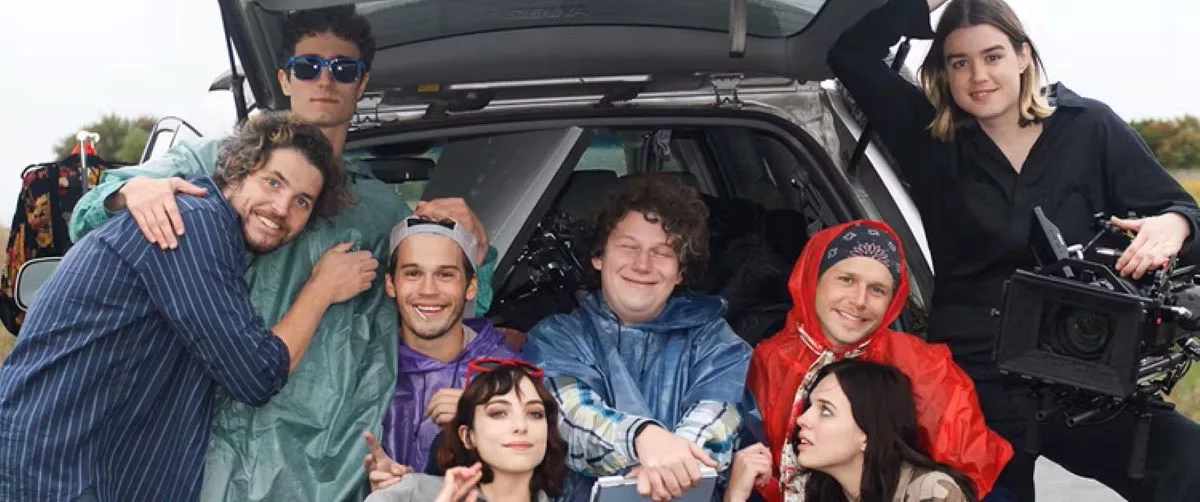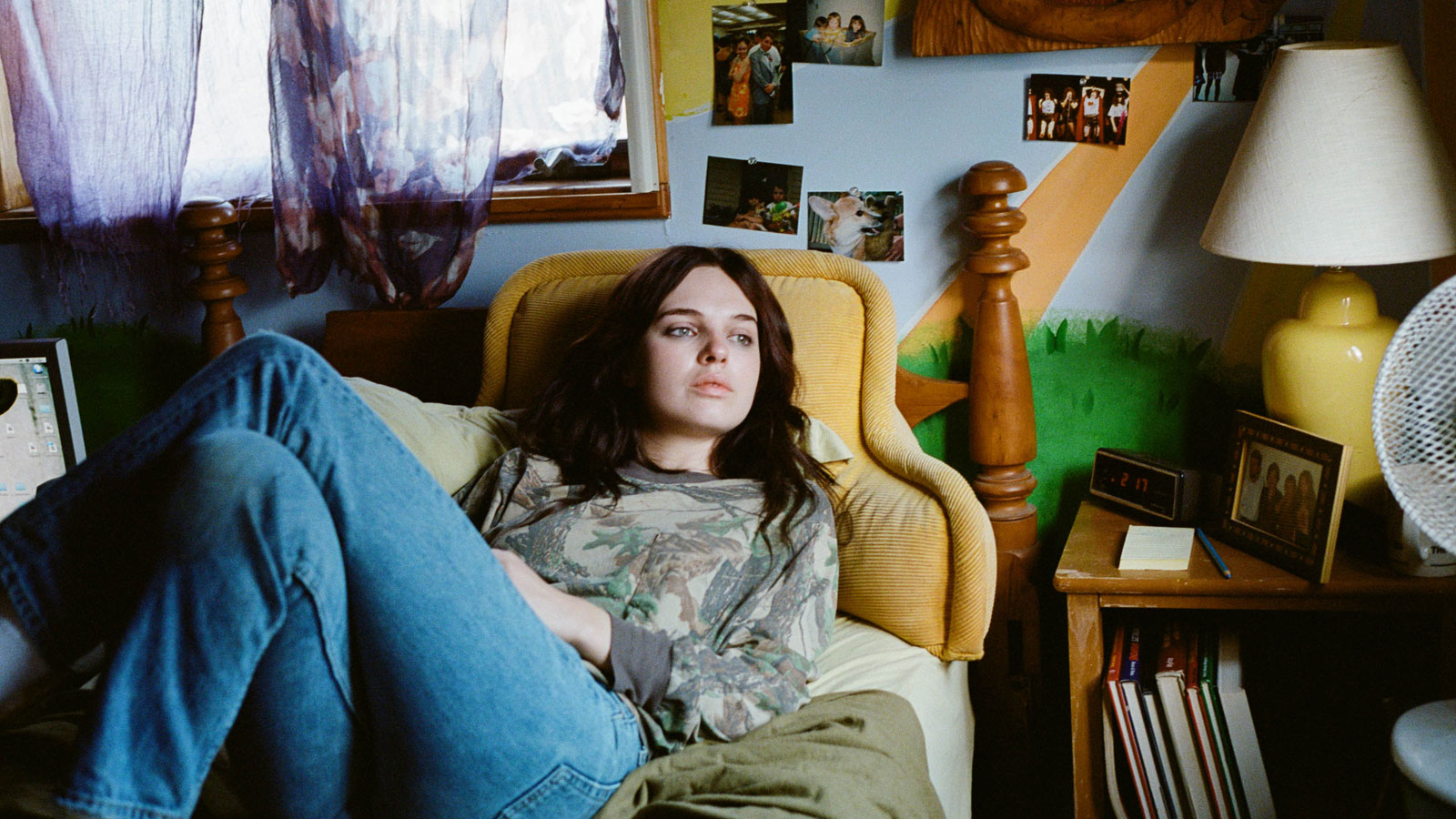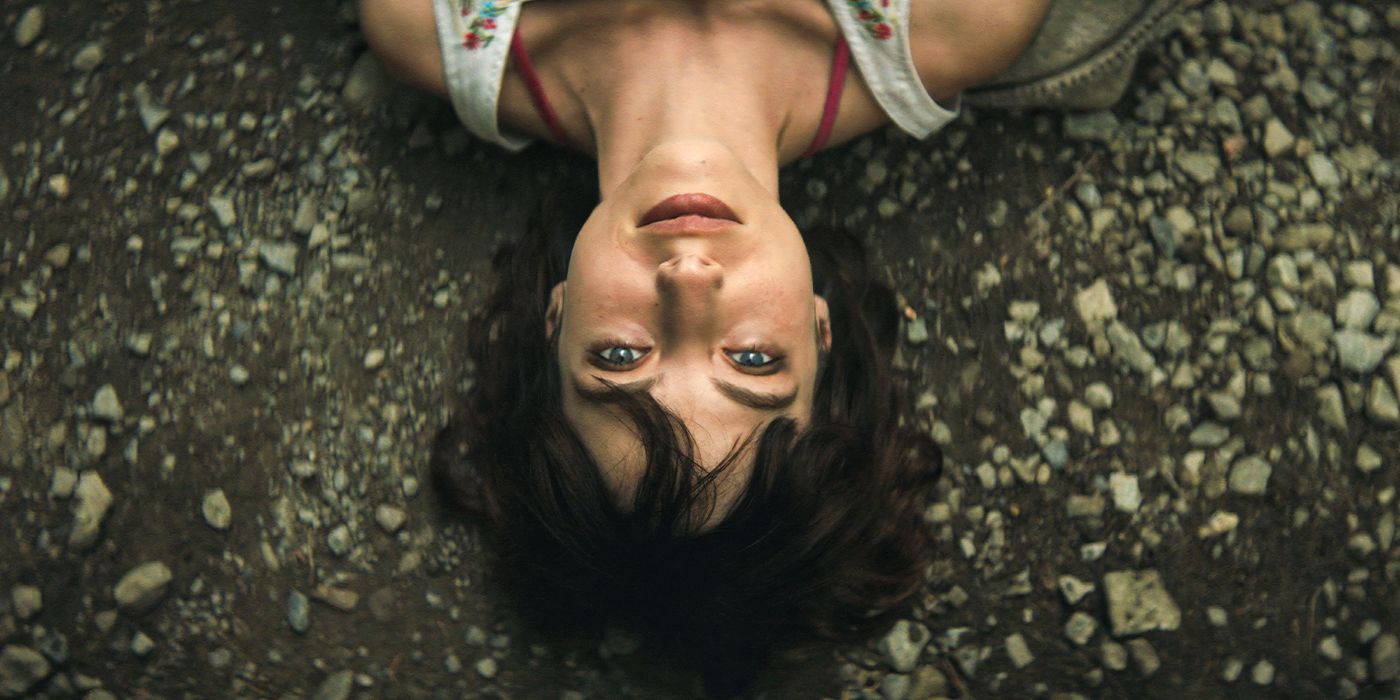
My First Film
- by admin
- Posted on 7 September, 2024
It’s rare to find something new in cinema. It’s rare to witness a new voice emerge, an artist bold enough to play around with cinematic language and form, as though there are no rules. It’s rare to “meet” a new artist whose work is so personal it feels like a fingerprint.
Zia Anger is one of those artists, and her first film, called, “My First Film,” is unlike anything else: it’s a hybrid documentary/online-journal/narrative feature, but it’s also a re-enactment of her 25-year-old self’s experience making her first movie titled “Always All Ways, Anne Marie” (listed as “abandoned” on IMDB). Navel-gazing is used as a pejorative, mostly by non-artists, but good art comes from the personal. It comes from gazing within, where you are honest about what you want to say and how you want to say it. Personal art doesn’t have to look a certain way. Piet Mondrian’s geometric paintings are personal. Anger has a lot to say. “My First Film” is very emotional, but it’s also filled with ideas about cinema, being a woman, and creating art. Anger is willing to acknowledge her flaws and shortsightedness, and brave enough to recognize it is our flaws that make us artists, not our perfection.

Anger is an experienced artist who has worked in all kinds of mediums: music videos, theatre, short films. In 2018, she began touring with a solo live performance about her experiences making her first film. She talked about the chaotic shoot where everyone was mostly stoned, where she lost control of things, so much so that the entire crew quit. The “failure” of the film challenged her self-belief. All of this is personal and specific to Anger’s life, but the film has a universal resonance, and not just for artists, but for anyone trying to find their way through the landmines of young adulthood, through growing up, through becoming.

The film opens with a blank screen and a blinking cursor. Then comes the click-clack of typing on an “old-fashioned” (i.e. 10 years ago) keyboard.
Note: This probably shouldn’t be a film.
But it is.
My videos are not the film lol
Still I thought the first thing you see should be “joy”.
Because I am really happy you are watching.
Happier than you could ever know.
Now why did this get to me? We were 15 seconds in and I was already in tears. “I am really happy you are watching” acknowledges the long journey to completion, to having a film in her hands ready to share. The audience is not a passive spectator and Anger acknowledges our presence. “My First Film” is built to be interactive.

Anger uses collage and personal footage, alongside the “re-enactments” (not quite the correct word for something so elaborate and deeply felt). Odessa Young plays Anger (named Vita in “My First Film”) and she is an open turbulent presence, free and chaotic, her emotions trembling close to the surface. She is often unsure of herself, and flails around trying to gain control of her crew, as well as her inexperienced lead “actress” who’s “seen a lot of movies”. Anger shares videos of her two moms, and details in voiceover growing up near Lavender Hill, where a gay commune flourished in the 1970s. Anger’s parents emerged from that scene. Anger shares footage of one of her mothers, a legitimate mime, performing her “period piece”, where she enacts the violent process of ovulation. Vita crouches, filming her mother, knowing there’s something essential here, something so “itself” it couldn’t exist anywhere else. She “pitches” this idea to a startup media company and they call it “too esoteric”.
Vita, fired up (“I remember thinking I was brilliant”, says Anger, wryly, in voiceover), writes a script, launches a crowdfunding campaign, gathers a skeleton crew of friends and ex-hookups, and they start filming in the area around Lavender Hill. Vita has to practice saying “Action!” with authority. She struggles to communicate what she wants. Her boyfriend is needy and keeps interrupting the shots because he wants to “talk” with her about his feelings. He comes inside of her without a condom. His reaction is practically, “Oops!”

Anger says in voiceover, “I wish I could show you something that is true.” She does. She also says, “I didn’t trust the rules of cinema.” One of the underlying motifs is the work of experimental Ukrainian filmmaker Maya Deren (1917-1961), who wrote passionately about her theories on cinema. Clips from Deren’s 1944 film “At Land” are used as illustration: a woman walks alone up and down sand dunes, disappearing from view, re-appearing, vanishing again. Deren is quoted extensively: “And so, ready or not, willing or not, you must come to comprehend with full responsibility the world which we’ve now created.”
“My First Film” is Anger’s attempt to “comprehend with full responsibility” her own world, one of “falling in love with making something,” as she calls it, even if no one sees it. Sandi Tan’s 2018 film “Shirkers,” also about a filmmaker’s lost first film, takes a more traditional approach, while also expressing a yearning for what she made, and the heart she put into it. “Falling in love with making something” is both a fragile and a strong experience. It’s not about the final product, as difficult as that is to accept. Anger puts her emotional and artistic process onscreen. The score by Perfume Genius (Michael Alden Hadreas) swirls around the scenes, supporting the action by deepening it, creating a dreamscape of feeling.
Only with maturity can you look back at your earnest younger self and see it as funny. “My First Film” is often quite funny. But Anger doesn’t mock. Young is so palpable onscreen, swirling with anger and sadness, excitement and anticipation … Vita is a real person, not an avatar. “Self-empowerment narratives” and movies about “female pain” are big business right now. But what do these films leave out? Being a constant “badass” is just as limiting as being a “damsel in distress”. What are between those two poles? All of humanity.
Near the end of “My First Film”, as things reach a high pitch of intensity, suddenly there’s a blank white screen again, with the blinking cursor. The unseen writer types:
“Are you still there?”
Yes. We are still here. We’re not going anywhere. We want more.
It’s rare to find something new in cinema. It’s rare to witness a new voice emerge, an artist bold enough to play around with cinematic language and form, as though there are no rules. It’s rare to “meet” a new artist whose work is so personal it feels like a fingerprint. Zia Anger is one…